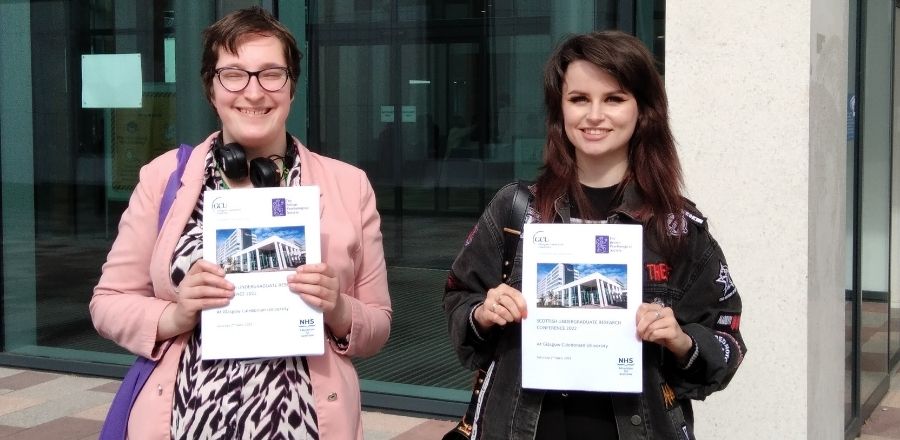Spotlight on students at British Psychological Society event

GCU recently played host to the British Psychological Society Undergraduate Conference, allowing final year students the opportunity to showcase their research.
On the 2nd of April, a select group of Psychology students from across Scotland were given the chance to reflect on their dissertations and present their abstracts, as well as getting to hear keynote speeches from special guests already working in their profession.
Eight fourth year BSc (Hons) Applied Psychology students were involved on the day, and we caught up with two of them to find out more about their work:
Natalia Jedras - Premenstrual experiences in applied psychology students
“I’ve looked into premenstrual experiences in trainee psychologists as I have dealt with a severe type of Premenstrual Syndrome called Premenstrual Dysphoric Disorder for many years. It was only fully diagnosed during first lockdown.
I would only feel happy and be productive for two weeks out of any month. Premenstrual experiences affect many individuals in the world and this includes many trainee and fully qualified psychologists. It is a factor that might be missed in practitioner wellbeing and missed in supervision.
Research in trainee psychologists like this is unheard of and is something I felt passionate about. We could help to improve psychologist wellbeing if these issues are researched and something could be brought into supervision. We can further research premenstrual impact on practitioner burnout.
An interesting theme emerged from the data, which is uncommon in premenstrual experience literature; self-care and treating themselves compassionately during their premenstrual period. It is a theme not seen much in contemporary premenstrual research and is something that needs further research.”
Emily Deans - Investigating the effect of gender on victim blaming variables by those in helping roles
“My dissertation looks at whether there is gender bias towards male and female victims of domestic abuse by those who occupy helping roles within a charity offering support for victims. I decided to look into this topic due to noticing a discrepancy in the knowledge about male and female domestic abuse services in my volunteer role. This did not appear to be a conscious discrepancy; therefore, I began to wonder if the gender of the victim had an unconscious influence on the support they would be offered. I am passionate about addressing the issues individuals face as victims of domestic and sexual abuse, therefore it was a natural fit for me to focus my dissertation on furthering knowledge of the support available for those affected by this.
Preliminary thematic analysis results have shown that there is a difference in the treatment of male and female victims. Female victims appear to be treated more comprehensively with less victim blame within this organisation compared to literature that investigated other mental health services. However, supporters appear to be less extensive when describing the issues of the male victim, with more consideration of the partner’s issues than in the female case study.”
By Ross Clark
Got an SHLS or GSBS story? Email me at Ross.Clark@gcu.ac.uk or message me on Twitter
